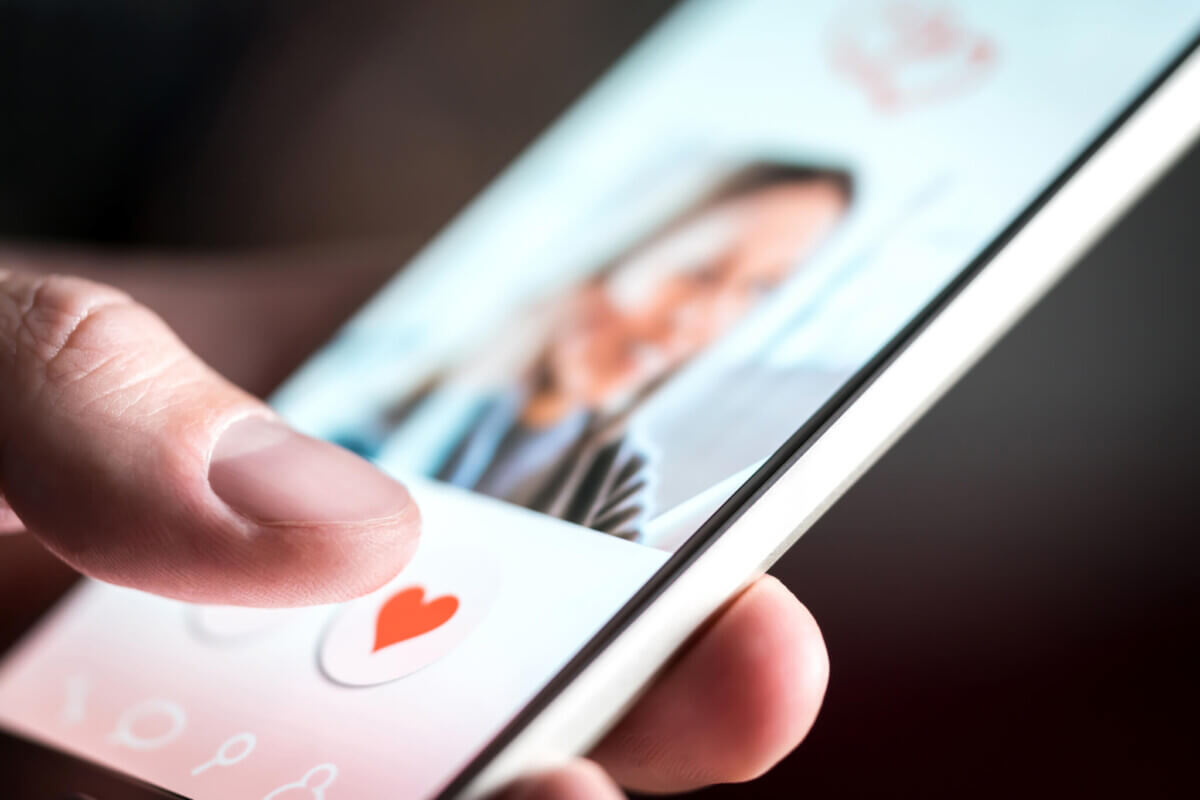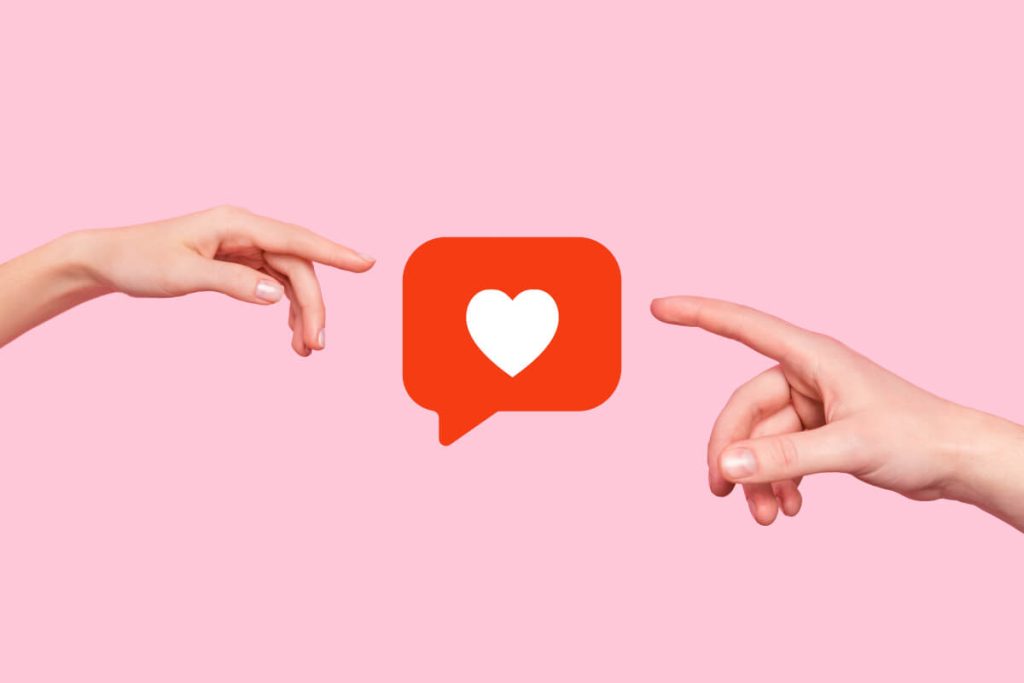

This study explores how modern online dating changes our willingness to seek out cosmetic procedures. (Roman Samborskyi/Shutterstock)
In a nutshell
- Women who use dating apps report significantly more positive attitudes toward cosmetic surgery and are more likely to undergo procedures like dermal fillers and anti-wrinkle injections compared to non-users.
- Deceptive self-presentation on dating apps, presenting oneself inauthentically, strongly predicts acceptance of cosmetic surgery, suggesting that digital appearance pressure may translate to real-world body modification.
- Researchers recommend dating apps implement features that encourage authentic self-presentation and personality-based matching rather than appearance-focused selection to reduce these negative psychological effects.
ADELAIDE, Australia — In today’s digital dating world, finding love often starts with a simple finger swipe. Mobile dating apps have completely changed how we meet potential partners, with millions turning to platforms like Tinder, Bumble, and Hinge for romance or casual connections. However, a new study from the University of South Australia reveals that these apps might be influencing more than just our relationship status; they could be changing how we feel about our appearance and increasing our willingness to go under the knife.
Published in Computers in Human Behavior, the study sheds light on the strong connection between dating app use and attitudes toward cosmetic surgery. The research shows that women who use dating apps are much more likely to have positive views of cosmetic procedures compared to women who don’t use these platforms.
“The visual nature of dating apps, which prioritize photo-based profiles, places significant pressure on users to present themselves in an idealized matter which is not genuine,” says lead study author Naomi Burkhardt, a provisional psychologist, in a statement.
This makes perfect sense when you think about how these apps work. Dating apps put photos front and center, creating a world where split-second judgments based on appearance determine whether someone gets a chance at connection. Love has truly digitized, and this digital transformation brings new pressures to present a perfect version of ourselves.
Dating Apps Spur ‘Deceptive Self-Presentation’
The findings shine a light on how technology is reshaping our relationship with our bodies. With around 323 million people worldwide using mobile dating apps to find love and intimacy, understanding these influences has never been more important.


It is not uncommon for women to engage in “deceptive self-presentation.” This means they show themselves inauthentically on dating profiles. Women who do this showed the strongest acceptance of cosmetic surgery. This suggests that the pressure to look a certain way online might push people toward permanently altering their physical appearance to match their digital persona.
Dating apps continue to boom in popularity, with Tinder alone reporting about 75 million users worldwide as of 2023. In Australia, where the study took place, Tinder remains the go-to dating app, followed by Bumble and Hinge. Experts predict that by 2040, more than 70% of relationships will begin online, showing just how central these platforms have become to modern romance.
Previous studies have looked at links between general social media use and acceptance of cosmetic surgery, but this research specifically targeted dating apps, which create unique pressures due to their explicitly evaluative nature. Unlike Instagram or Facebook, dating app profiles require users to put together a limited set of photos that clearly show what they look like to potential matches, creating intense pressure to look their absolute best.
Which Cosmetic Procedures Are Women Seeking?
The researchers surveyed 308 women with an average age of about 25 years. About half had used dating apps within the previous two years. They measured both authentic and deceptive self-presentation styles, along with attitudes toward cosmetic surgery.
Dating app users had significantly more positive attitudes toward cosmetic surgery than non-users, especially in the “social” and “intrapersonal” dimensions. They also reported having undergone more cosmetic procedures, including dermal fillers, eyelid surgery, rhinoplasty, and breast and buttock augmentations.


One in five women reported having at least one cosmetic procedure. Among those who had received cosmetic work, dermal fillers, and anti-wrinkle injections were particularly common, highlighting the emphasis on facial appearance in dating app interactions.
‘Selective Self-Presentation’
The most telling finding was that among dating app users, those who presented themselves inauthentically online were significantly more likely to have positive attitudes toward cosmetic surgery, even after accounting for factors like age and education. This suggests that people who feel the need to misrepresent themselves online may be more likely to consider surgical interventions to bring their real appearance closer to their idealized digital image.
A previous study found that 95% of Australian participants had edited a photo at least once before posting it on social media. Using filters or editing photos is considered a form of deceptive self-presentation rather than showing your authentic self.
Dating app users often engage in “selective self-presentation,” highlighting their attractive qualities while hiding less flattering aspects. This creates a cycle where everyone presents enhanced versions of themselves, raising the bar higher and potentially driving more people toward considering cosmetic procedures to keep up in this visually competitive marketplace.


Are Profile Pictures An Unrealized Problem?
Dating apps might be taking a bigger toll on women’s mental health than we realized. They seem to be fueling a whole range of issues—making women feel worse about their bodies, potentially contributing to eating disorders, cranking up anxiety levels, and chipping away at self-confidence. It’s like these apps aren’t just changing how we date, but how women feel about themselves on a fundamental level.
“Introducing more personality-based matching algorithms could also be considered to reduce the emphasis on physical looks, and apps could offer built-in body image interventions such as self-compassion exercises to mitigate the pressures to alter one’s appearance,” says study co-author Lauren Conboy.
As these platforms become increasingly central to how relationships form, their influence on body image and cosmetic surgery attitudes could have widespread societal impacts. Understanding these connections provides valuable insights for mental health professionals, app developers, and users themselves.
“Dating apps have the potential to create healthier environments, where users can connect without feeling the need to confirm to unrealistic beauty standards,” says study co-author John Mingoia. “Hopefully this research can guide future studies to develop interventions to improve the authenticity of dating app use as well as support practitioners to better identify the motivations for women wanting to change their appearance.”
As dating apps continue to reshape how we find love, this research offers an important look at their less obvious effects on how we perceive and modify our bodies. In a world where finding love increasingly begins with a profile picture, understanding the psychological effects of these technologies becomes essential for both individuals and society as a whole.
Paper Summary
Methodology
Researchers surveyed 308 Australian women (average age 25) through an online questionnaire, with half being dating app users. The study measured dating app usage patterns, self-presentation styles (authentic vs. deceptive), and attitudes toward cosmetic surgery. Researchers then compared dating app users with non-users and examined whether self-presentation styles predicted cosmetic surgery acceptance, controlling for demographic factors.
Results
Dating app users (who predominantly used Tinder, Bumble, and Hinge) showed significantly more positive attitudes toward cosmetic surgery and reported more cosmetic procedures than non-users. One in five participants had undergone at least one cosmetic procedure, with dermal fillers and anti-wrinkle injections being most common. Most importantly, deceptive self-presentation on dating apps significantly predicted positive attitudes toward cosmetic surgery, while the frequency of app use did not.
Limitations
The study had several limitations: uneven sample sizes across different dating apps, a two-year measurement period that may have affected recall accuracy, reliance on self-reported data about sensitive topics, lack of information about frequency of procedures, and exclusive focus on women, limiting the ability to explore gender differences.
Discussion and Takeaways
Dating apps appear to function as a novel source of appearance pressure, with deceptive self-presentation predicting greater acceptance of cosmetic surgery. The researchers suggest several practical applications: dating apps could implement features encouraging authentic self-presentation or personality-based matching, incorporate body image interventions like self-compassion exercises, and cosmetic surgery practitioners could screen for unhealthy digital influences. The findings could help create healthier online dating environments and support individuals in navigating these platforms with greater awareness of their psychological effects.
Funding and Disclosures
The researchers explicitly stated that this research did not receive any specific grant from funding agencies in the public, commercial, or not-for-profit sectors. No conflicts of interest were disclosed by the authors, suggesting that the research was conducted independently without external financial interests that might influence the findings or their interpretation.
Publication Information
This study, titled “Swipe, style, surgery: Exploring dating app use, self-presentation style, and acceptance of cosmetic surgery,” was authored by University of South Australia researchers Naomi Burkhardt, John Mingoia, and Lauren Conboy. It was published in the journal Computers in Human Behavior (volume 165) in January 2025 (available online January 17, 2025). The research was published as an open-access article under the CC BY license, making it freely available for public access and distribution with proper attribution.








